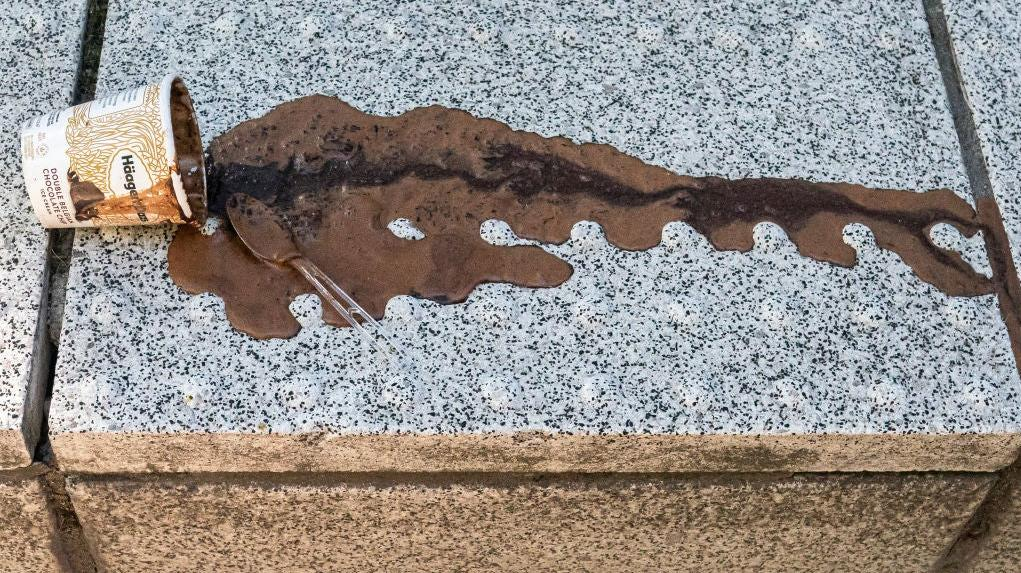How To Handle A Heat Wave If You Own A Grocery Store Or A Food Truck
Store- and truck-owners in the Pacific Northwest are resorting to desperate measures to save their businesses.
We already told you this morning about the effects of the Pacific Northwest heat dome on the region's oyster beds. But plenty of other businesses are suffering, notably grocery stores and food trucks, which were completely unequipped to handle 100-plus degree temperatures. (And why would they be? In a normal Pacific Northwest summer, 80 degrees is considered uncomfortably hot.)
Business Insider has compiled many reports of how the heat is affecting grocery stores in the region. Refrigeration malfunction is very common, given that many refrigerated sections have open shelving, and store owners have been forced to stop selling perishable goods like meat and dairy products while cordoning off the aisles. Others have tried to preserve their product by draping plastic sheets over everything.
Air conditioning is also a problem; many units can't handle the heat. At least two Fred Meyer locations near Seattle are using rooftop sprinkler systems to cool off air conditioning and freezer units. Meanwhile, many stores are sold out of Gatorade and other electrolyte drinks that are helpful for beating the heat.
In Portland, which has a large and celebrated food cart scene, cart owners are also suffering. "I don't know how food carts are going to be able to manage through this," one told CNN. Many carts have had to shut down because it's too hot to cook (temperature inside a cart can be 20 degrees hotter than outside) and because customers don't want to wait in line in the heat, and those are the lucky ones: others have suffered damage to their refrigerators and to the carts themselves after components have melted in the heat. These losses account for thousands of dollars, which is a huge strain on businesses that are already operating on thin margins.
Brick-and-mortar restaurants, although air-conditioned, are suffering from similar problems. Naomi Pomeroy, a chef in Portland and a member of the city's Independent Restaurant Coalition, told CNN that after the COVID year that already caused major changes in the industry (a greater dependence on takeout, a demand for higher wages, a labor shortage), this heat wave may be more than some restaurant owners can handle. "The pandemic kind of laid bare a lot of the flaws in our business model," she said. ""At the core of it, it's really going to be about big versus small, and ... everything feels like it's weighted toward big business."
And now with climate change, there's the possibility (probability) of more heat domes, another thing to worry about.
